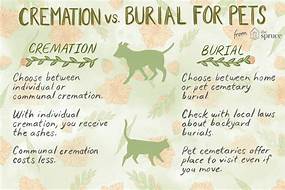Does Low-Income Housing Allow Pets?
Finding affordable housing that also allows pets can be a challenge, especially for low-income individuals and families. While some low-income housing complexes do allow pets, there may be restrictions on the type, size, and number of pets allowed. Additionally, there may be additional fees or deposits required for pet owners.

Understanding Pet Policies in Low-Income Housing
1. Restrictions on Pet Types:
Some low-income housing complexes may have restrictions on the types of pets allowed. Common restrictions include prohibiting certain breeds of dogs, such as pit bulls, Rottweilers, and Dobermans. Additionally, some complexes may not allow certain types of pets, such as exotic animals, reptiles, and birds.
2. Size and Weight Limits:
There may also be size and weight limits for pets in low-income housing. For example, a complex may only allow pets that weigh less than 20 pounds or have a height limit at the shoulder. These restrictions are in place to ensure the safety and comfort of all residents.
3. Number of Pets Allowed:
Low-income housing complexes may also limit the number of pets allowed per household. This is to prevent overcrowding and ensure that all pets have adequate space to live comfortably.
Additional Considerations for Pet Owners
1. Pet Fees and Deposits:
Many low-income housing complexes charge additional fees or deposits for pet owners. These fees may cover the cost of pet screening, pet waste removal, and any potential damage caused by pets. It's important to factor these costs into your budget when considering a low-income housing complex.
2. Pet Care and Responsibility:
As a pet owner, you are responsible for providing adequate care for your pet. This includes providing food, water, shelter, and veterinary care. You are also responsible for cleaning up after your pet and ensuring that they do not cause a nuisance to other residents.
3. Emotional Support Animals:
Individuals with disabilities may be able to keep an emotional support animal in low-income housing, even if pets are not generally allowed. Emotional support animals provide comfort and support to people with mental or emotional disabilities. To qualify for an emotional support animal, you will need a letter from a healthcare professional stating that you have a disability and that the animal provides emotional support.
Conclusion
Finding low-income housing that allows pets can be challenging, but it's not impossible. By understanding the pet policies of different complexes and being prepared for additional fees and responsibilities, you can increase your chances of finding a place that welcomes both you and your furry friend.
Declaration: All article resources on this website, unless otherwise specified or labeled, are collected from online resources. If the content on this website infringes on the legitimate rights and interests of the original author, you can contact this website to delete it.





